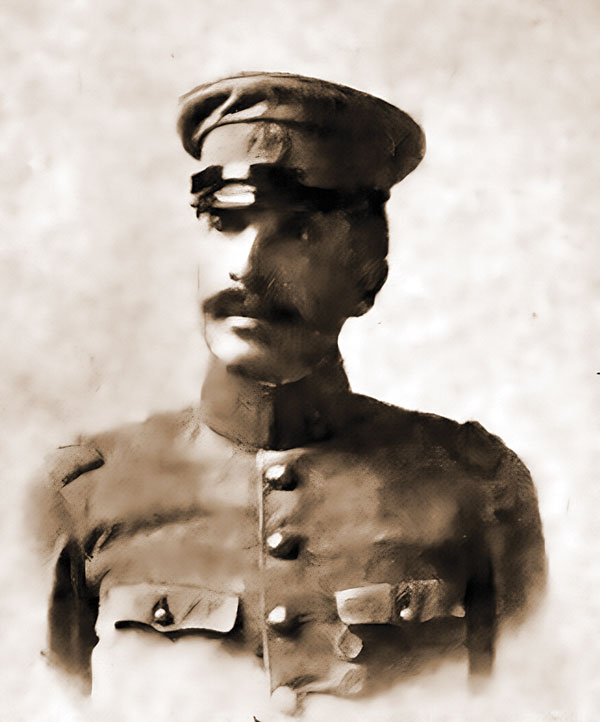Felipe Ángeles

“I have had infinite tenderness and love for humanity and for all beings in the universe.”
He was a humanist soldier, a philosopher general, a conciliatory revolutionary. Like Don Quijote (his hero), Felipe Ángeles had many impossible dreams: that well-educated officers would lead the Mexican military who, trusting their own inner free will instead of bowing to strict imposed discipline, would prefer negotiation to conflict, and thus win their greatest victories off the battlefield; that such enlightened leaders could join together to end the Revolución quickly, and then to gradually enact sweeping social reforms. He prized liberty – individual and political – above all. He said, “Know that I will spend my whole life in exile before bowing my head, or that I will die hanged from a tree at the hands of a Huertista or a Carrancista for the capital crime of hating dictatorships; or that one day I will collaborate successfully in winning freedom and justice for all, even for them.” Alas! Ángeles would become a martyr for his dreams.
Ángeles joined the military academy at the tender age of 14. Although shy and often dismissed as naive or even delusional for his progressive ideas, he earned grudging respect for his obvious intelligence. In fact, the French would later declare him a Knight of the Legion of Honor.
When the Revolución broke out in 1910, President (dictator) Porfirio Díaz kept Ángeles in France studying artillery. Afterward, the new President Francisco Madero welcomed Ángeles into his ranks, promoted him to Brigadier General, and soon learned to trust him above all others. When Emiliano Zapata faced Ángeles in battle, he too appreciated his chivalrous tactics. Venustiano Carranza, similarly impressed, made Ángeles his Undersecretary of War.
However, disgusted with Carranza’s personal character as well as his disdain for law and democracy, Ángeles shifted his allegiance to Pancho Villa, proving himself indispensable in Villa’s battles against both Huerta and then Carranza, too. Towards the end, though, when Villa became increasingly erratic and ruthless, Ángeles stepped away to wander, completely disillusioned – as all such Quixotic visionaries eventually become.
Carranza caught him. Unable to just shoot such a famous and universally respected officer, he had to put Ángeles on what turned out to be a very public trial.
“I preached brotherhood, the union between the different elements of the country,” Ángeles explained in his defense. “I have taught, as a teacher I have been all my life; I have preached social equality, since nothing is more disastrous than such vast inequalities … I have had infinite tenderness and love for humanity and for all beings in the universe.” His testimony was frequently interrupted with wild applause.
Nonetheless, Ángeles was found guilty of treason, and executed. There really was no place for a Don Quijote in Mexico. Poor Felipe Ángeles was a man far ahead of his time.
The new international airport outside Mexico City will be named in his honor.
This is a selection from Ellison’s recently published book, Mexican Streets: Tales of Tragedy and Triumph, available at Handy Mail, Diane Pearl’s, and Amazon.
- Streets of Mexico – August 2025 - July 29, 2025
- Streets of Mexico – July 2025 - June 29, 2025
- Streets of Mexico – June 2025 - May 29, 2025


 Discover trusted local services and hidden gems with our easy-to-use online directory.
Discover trusted local services and hidden gems with our easy-to-use online directory.

